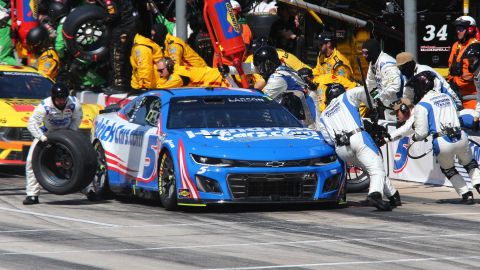President Donald Trump in his first official day in office reaffirmed his intention to significantly alter U.S. trade agreements.
Minutes after Trump took the oath of office Friday, his administration announced his intention to withdraw the U.S. from the Trans-Pacific Partnership and renegotiate the North American Free Trade Agreement in a statement posted to the White House’s website.
“With a lifetime of negotiating experience, the President understands how critical it is to put American workers and businesses first when it comes to trade,” the White House said in the statement. “With tough and fair agreements, international trade can be used to grow our economy, return millions of jobs to America’s shores and revitalize our nation’s suffering communities.”
Although the White House statement said Trump’s position on trade will “bring jobs back to America’s shores, increase wages and support U.S. manufacturing,” the Center for Automotive Research suggests the opposite.
A recent study conducted by CAR found that withdrawing from NAFTA, and implementing Trump’s proposed 35 percent tariff on all Mexico-built vehicles, would eliminate at least 31,000 U.S. automotive manufacturing jobs. Additionally, doing so would require the 10 largest automakers to increase U.S. production output by 1 million units, which currently they don’t have the capacity to do.
Trump has singled out Mexico the most in his criticism of NAFTA, but restructuring the agreement would also have a major impact on Canada. In his statement congratulating Trump on his inauguration, Canada’s prime minister Justin Trudeau reportedly stressed the importance of the country’s relationship with the U.S.
“Canada and the United States have built one of the closest relationships between any two countries in the world,” Trudeau said in a statement. “This enduring partnership is essential to our shared prosperity and security.”
Experts suggest withdrawing from NAFTA would be a complex process, as 55 percent and 85 percent of all cars made in Mexico and Canada, respectfully, are imported to the U.S.
For more automotive news and updates, visit NESNFuel.com>>>
Thumbnail photo via Lauren Petracca/The Greenville News via USA TODAY NETWORK




